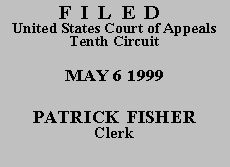

| LINDA SKAAR,
Plaintiff-Appellant, v. ALBUQUERQUE PUBLIC SCHOOLS, Defendant-Appellee. |
|
Plaintiff Linda Skaar appeals from an order of the district court(1) dismissing her case as a sanction for failure to follow discovery orders. We affirm.
Ms. Skaar was employed by defendant as an elementary school teacher beginning in 1969. Her contract was not renewed in 1996 after she had been on paid medical leave of absence for the 1995-96 school year. She commenced this action pursuant to the Americans with Disabilities Act, 42 U.S.C. §§ 12101-12213, claiming that defendant had failed to provide reasonable accommodation for her multiple chemical sensitivities, an environmental illness.
During discovery, defendant sought to have Ms. Skaar examined by its own medical expert in accordance with Fed. R. Civ. P. 35. The examination was scheduled to take place in a physician's office associated with a local hospital where Ms. Skaar was also to undergo a pulmonary function test. Ms. Skaar, although she wished to be examined at home, did submit to the examination at the physician's office. She declined to take the pulmonary function test because of her fear she would be exposed to chemicals which could exacerbate her illness. Defendant claimed the test was necessary to rule out treatable conditions.
Defendant first sought to have the test performed in September, 1997. Due to Ms. Skaar's refusal to take it, the court ordered further information on whether undergoing the test would expose Ms. Skaar to potentially harmful chemicals and how any such exposure could be minimized. Upon receipt of the information, the court again ordered that the test be performed. Ms. Skaar continued to refuse to submit to the testing and on March 3, 1998, the court entered another order directing Ms. Skaar to submit to the test. Ms. Skaar refused to have the test done. Defendant moved for sanctions based on Ms. Skaar's failure to comply with the court's orders. A jury trial was scheduled for March 23, 1998.
Ms. Skaar did not attend the hearing on defendant's motion, but her counsel submitted a letter she had sent him stating she would not undergo the test. The magistrate judge then recommended that the case be dismissed as a sanction. In her objections to that recommendation, Ms. Skaar stated that she was now willing to take the test. The court granted defendant's motion and dismissed the case.
On appeal, Ms. Skaar argues that dismissal was an inappropriate sanction. She states that, although the pulmonary function test has no relevance to her claimed condition, she is now willing to take it. Counsel contends that there was either a lack of communication or a misunderstanding between him and his client and he did not understand that Ms. Skaar was willing to take the test.
We review a court's order of dismissal as a sanction for discovery violations under the abuse of discretion standard. See Ehrenhaus v. Reynolds, 965 F.2d 916, 920 (10th Cir. 1992). Although dismissal is a drastic sanction, it is appropriate in cases of willful misconduct. See id.; see also Fed. R. Civ. P. 37(b)(2)(C) (authorizing a court to enter an order dismissing the action if a party "fails to obey an order to provide or permit discovery"). Before entering such an order the court must examine: "(1) the degree of actual prejudice to the defendant; (2) the amount of interference with the judicial process; . . . (3) the culpability of the litigant; (4) whether the court warned the party in advance that dismissal of the action would be a likely sanction for noncompliance; and (5) the efficacy of lesser sanctions." Ehrenhaus, 965 F.2d at 921 ( quotations and citations omitted).
The record shows that Ms. Skaar abused the discovery process and flouted several court orders compelling discovery. The district court addressed all of the necessary factors in determining that no lesser sanction would suffice. We hold that the district court acted within its discretion in dismissing this action and
AFFIRM the dismissal for substantially the reasons set forth in the magistrate judge's order of March 24, 1998.
Entered for the Court
Circuit Judge
*. This order and judgment is not binding precedent, except under the doctrines of law of the case, res judicata, and collateral estoppel. The court generally disfavors the citation of orders and judgments; nevertheless, an order and judgment may be cited under the terms and conditions of 10th Cir. R. 36.3.
1. The parties agreed to have this case heard by the magistrate judge. Thus, this appeal is properly taken from the magistrate judge's entry of final judgment. See 28 U.S.C. § 636(c)(3).